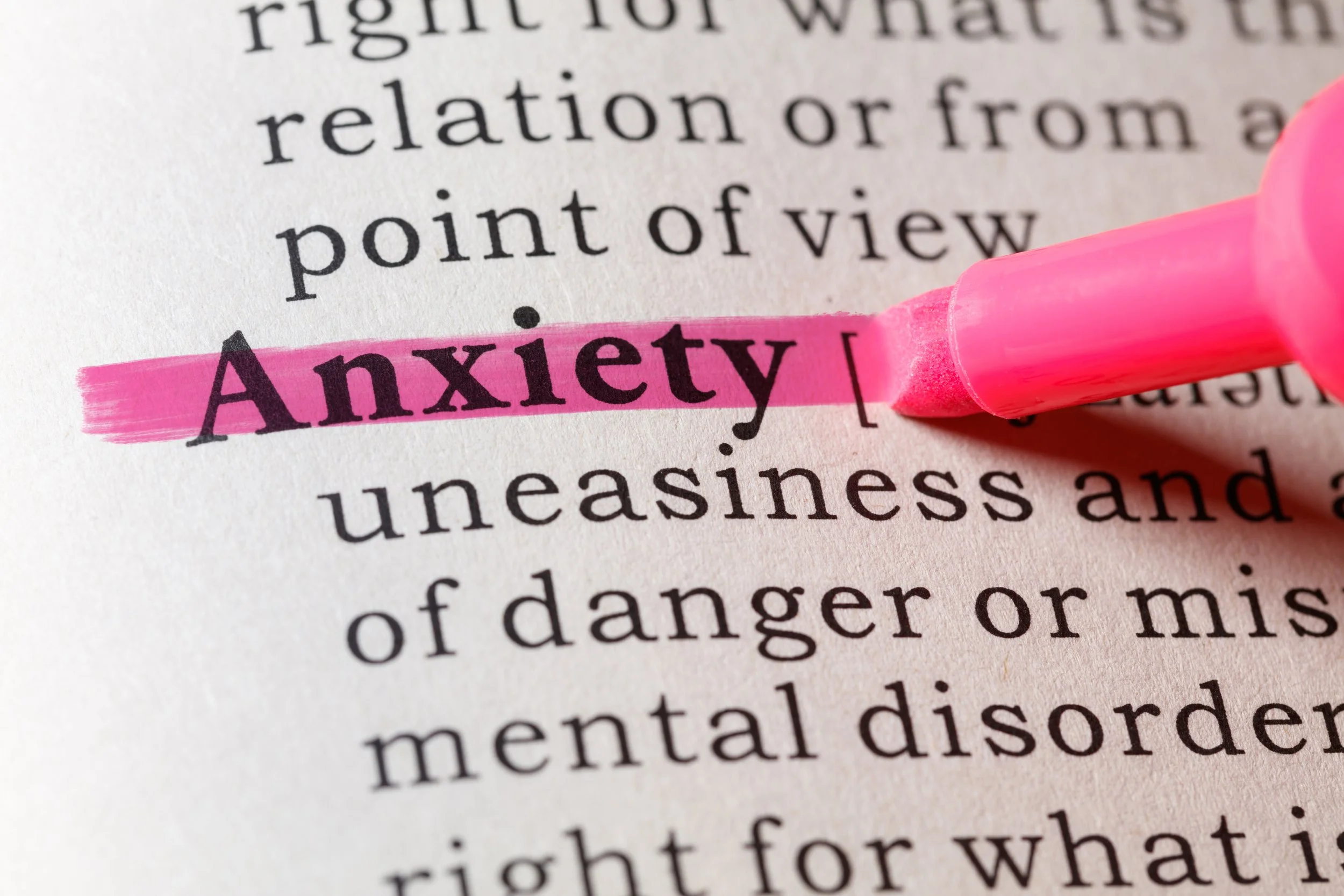
Understanding Anxiety: A Survival Signal, Not a Flaw
Anxiety is universal. Even those who seem cool, calm, and collected experience it. And for good reason — anxiety is necessary for our survival. That’s right: anxiety is necessary.
Is it pleasant? No.
Fun? Not really.
Embarrassing? Sometimes.
But it’s also unavoidable, necessary, and even useful.
The goal isn’t to eliminate anxiety. It’s to understand it, tolerate it, and even use it to our advantage when it shows up.
Anxiety is universal. Even those who seem cool, calm, and collected experience it. And for good reason — anxiety is necessary for our survival. That’s right: anxiety is necessary.
Is it pleasant? No.
Fun? Not really.
Embarrassing? Sometimes.
But it’s also unavoidable, necessary, and even useful.
The goal isn’t to eliminate anxiety. It’s to understand it, tolerate it, and even use it to our advantage when it shows up.
What Exactly Is Anxiety?
Anxiety is our body’s built-in alarm system. It’s the tingle in our toes, the butterflies in our stomach, the sweating, the quickened breath. These physical reactions are our body’s way of saying:
“Hey, pay attention! Something’s going on here.”
Think about our ancient ancestors. Anxiety helped them survive in dangerous, unpredictable environments. Imagine hunting for food — you had to stay alert and aware of every sound and movement. That tingle on the back of your neck could mean the difference between life and death. The racing heart, the adrenaline rush — all of it prepared the body to fight, flee, or freeze.
Thankfully, most of us aren’t dodging predators these days. But our modern “threats” — social situations, deadlines, tests, uncertainty about the future — trigger the same biological response.
Anxiety isn’t a character flaw or personal weakness; it’s biology. We are literally wired to survive. So if you’re one of the “lucky” ones who feels anxiety strongly, give your body a high-five — it’s just doing its job.
When Anxiety Overreacts
Sometimes, though, anxiety misfires. It warns us of danger when there isn’t any. It convinces us to avoid things we actually want to do. It makes us feel stuck, small, or alone.
But here’s the key: anxiety is a messenger, not the enemy.
Once we understand that, we can start building tolerance.
Breaking the Cycle of Avoidance
When we feel anxious or uncomfortable, our instinct is to avoid whatever’s causing it. Avoidance gives us temporary relief — we feel better for a moment, so our brain learns, “Ah, that worked!”
Unfortunately, this reinforces the idea that the situation was dangerous. The next time we face something similar, the anxiety hits even harder. This creates a cycle of anxiety → avoidance → more anxiety.
To break that cycle, we have to do something counterintuitive:
Face the discomfort — on purpose.
Building Tolerance Through Practice
One of the most effective ways to manage anxiety is to increase our tolerance by gradually placing ourselves in anxiety-provoking situations.
Yes, it’s uncomfortable — but that’s the point. Growth always feels that way at first. When the anxiety rises, remind yourself:
“I can handle this. This isn’t actually dangerous.”
Try small “comfort zone challenges” to build that muscle:
Start a conversation with a stranger.
Try a new hobby that feels intimidating.
Attend an event alone.
Share your opinion.
Take a cold shower.
Wear something you wouldn’t normally wear.
As you do, notice what happens in your body — where you feel the tension, what thoughts arise. Then, a few minutes later, notice how the intensity starts to fade.
You’re surviving the moment — and that’s how tolerance grows.
The Bottom Line
Anxiety isn’t a flaw to fix — it’s a signal to understand. When we learn to listen to it, tolerate it, and move through it, we reclaim our power.
Anxiety may never disappear entirely, but it doesn’t have to control your life. You can coexist with it — and even thrive because of it.
Would you like some more support to guide you through your recovery? Reach out to our office today and make an appointment.
Ambiguous Loss: What Is It?
Dr. Pauline Boss, PhD, from University of Minnesota, has spent most of her career studying and writing books about ambiguous loss. Have you considered how your life be impacted by an ambiguous loss? The following article is a brief summary of her findings.
Ambiguous Loss: What Is It?
Dr. Pauline Boss, PhD, from University of Minnesota, has spent most of her career studying and writing books about ambiguous loss. Have you considered how your life be impacted by an ambiguous loss? The following article is a brief summary of her findings:
What is an Ambiguous Loss?
Loss that remains unclear
Ongoing and without clear ending
Can’t be clarified, cured, or fixed
Ambiguous loss can be physical or psychological, but there is incongruence between absence/presence
Contextual: The pathology lies in a context or environment of ambiguity (pandemic, racism)
Two Types of Ambiguous Loss
Physical Absence with Psychological Presence--Leaving without saying goodbye
Catastrophic: disappeared, kidnapped, MIA
More common: leaving home, divorce, adoption, deployment, immigration
Psychological Absence with Physical Presence--Goodbye without leaving
Catastrophic: Alzeimer’s disease and of dementias, brain injury, autism, addiction
More Common: homesickness, affairs, work, phone obsessions/gaming, preoccupation with absent loved one
What Ambiguous Loss is NOT:
Death
Grief disorder
PTSD
Complicated grief
Ambivalence (different that ambiguous)
Examples of Ambiguous Loss Caused by Pandemic--loss of who we have been, what we have been doing, having control over lives, loss of our world view as safe place.
Our usual agency
Control over our usual personal, family, and work life
Our in person relationships
Our job; loss of money and financial security
Our sense of safety
The ability to control how much time we spend with family and friends
Ability to gather physically together in large numbers for worship, sports, concerts
Are you struggling with ambiguous loss? Our team of professionals at Summit Family Therapy can help. Give our office a call at 309-713-1485 or email info@summitfamily.net. You do not have to go through this alone.
Life Transitions: 8 Tips for Getting Through Tough Times
Life transitions are usually life changing events that cause us to re-examine our present sense of who we are. Although life transitions can happen at any age, many people will experience significant life transitions during mid-life or at retirement.
What is a Life Transition?
Life transitions are usually life changing events that cause us to re-examine our present sense of who we are. Although life transitions can happen at any age, many people will experience significant life transitions during mid-life or at retirement.
Examples of Life Transitions
Getting married
Pregnancy / Becoming a parent
Divorce or relational separation
Leaving parent’s home or moving to new home
Empty nest syndrome
Change in career or loss of career
Health changes / serious illness
Significant loss (person, pet, or anything important)
Retirement
If Life Transitions are normal, why do I feel so overwhelmed?
Transition means change. We are resistant to change. Most of us like predictability in our everyday lives. The unknown causes us fear and stress. We feel vulnerable. There can be a sense of grief or loss.
Are there any positives?
Changes, especially difficult changes, can promote personal growth. Dealing with a change successfully can leave a person stronger, more confident and better prepared for what comes next in life. Even unwanted or unexpected changes may produce beneficial outcomes.
You might gain new knowledge or develop new skills as the result of life transition. These changes might allow you to discover what’s important in your life and assist you in achieving greater self-awareness.
Coping with Change
Someone facing change may also experience depression, anxiety, changes in eating habits, trouble sleeping, or abuse of alcohol or drugs. If these symptoms persist or change disrupts normal coping mechanisms and makes it difficult or impossible for person to cope with new circumstances, a person may be diagnosed with an Adjustment Disorder. Symptoms typically begin within 3 months of the stress or change. It’s important to seek immediate assistance if you are engaging in reckless / dangerous behaviors or having thoughts of suicide—call 911.
Therapy for Change
A therapist may incorporate a variety of techniques such as emotionally focused therapy, cognitive behavioral therapy, acceptance commitment therapy or motivational interviewing. A therapist will assist in treating stress, anxiety and depression while exploring new coping strategies with the client.
How can I cope with Life Transitions?
Understand that while Life Transitions are difficult, they can promote positive outcomes
Accept that change is a normal part of life
Identify your values and life goals
Learn to identify and express your feelings
Expect to feel uncomfortable
Take care of yourself
Build a support system
Don’t hurry- focus on rewards
Acknowledge what’s been left behind
If you are struggling with a Life Transition or significant change in your life, you may benefit by engaging in therapy with a professional counselor. Together you can identify your feelings, process the potential changes and formulate goals in order to move forward in your life.



